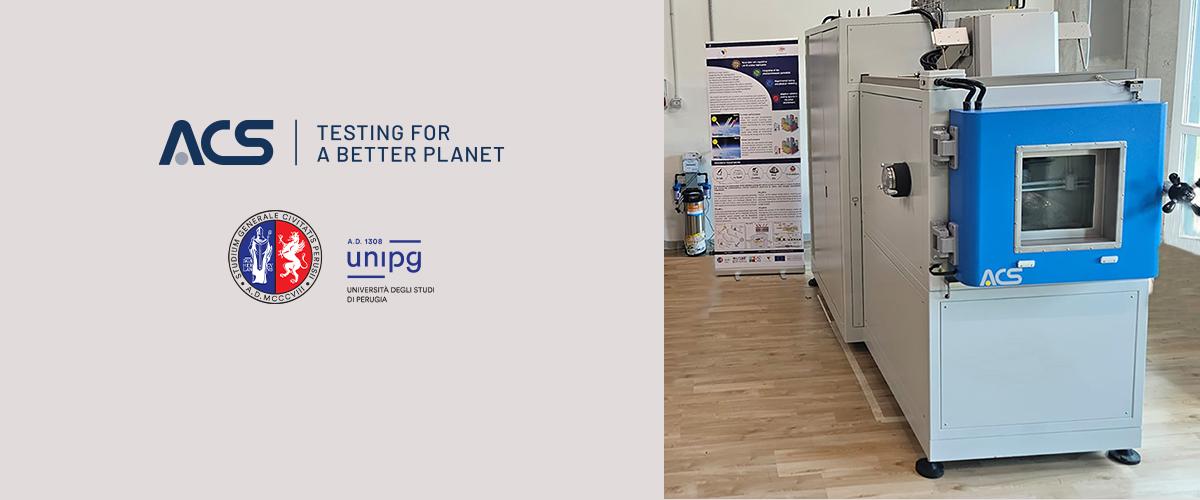ACS chamber for vacuum and solar radiation tests supports research at the University of Perugia

The development of new "smart" materials, with adaptive performances aimed at increasing the energy efficiency of the built environment is one of the main research lines of EAPLAB, the Technical Physics laboratory of the Engineering Department of the University of Perugia.
The research objectives carried out by the EAPLAB group, founded by Prof. A.L. Pisello, concern the development of new "smart" materials, with performances aimed at increasing the energy efficiency of the urban environment.
“The configuration of the new ACS UD150 C SR climatic chamber for carrying out tests even in vacuum conditions and with control of solar radiation (as well as temperature and relative humidity) arises from the experience already accumulated with a classic ACS chamber that we have owned since 2016. The use of a climatic chamber is fundamental for us as it allows us to simulate all the climatic conditions, both common and extreme, to which the materials we are going to develop and characterize may find themselves exposed, once implemented as "skin” of our cities. In addition to the control of temperature, humidity and air speed, the new chamber guarantees us greater precision in controlling solar radiation - over an area that is adequately large for us - where we position the specimens to be tested. The addition of the simulation of vacuum conditions then allows us to exclude, if of interest for the experimental campaign, convective heat exchanges and thus concentrate only on the radiative exchanges of our materials."
These are the words of Anna Laura Pisello, Associate Professor of Environmental Technical Physics at the University of Perugia, whom we asked about the main benefits obtained with our UD150 C SR chamber: "The chamber was financed by a European project, awarded by the European Research Council, and aimed at the development and analysis in real dynamic conditions of adaptive materials (which vary their performance as the surrounding conditions vary), with particular attention to the phenomenon of passive daytime radiative cooling. The latter is triggered in the presence of materials characterized by an excellent thermal emissivity, even better if concentrated spectrally in the bands of the atmospheric window (i.e. in those wavelengths compared to which the atmosphere is transparent and the material is able to exchange heat directly with outer space). The applications we hope for these materials consist in the development of surface coatings for buildings and urban pavements as a strategy to mitigate urban overheating. The reference project is called HELIOS and has its own website where you can also find information on the various facilities of the EAPLAB, including the ACS climatic chamber.”
Further research objectives pursued by the EAPLAB group, founded by Prof. A.L. Pisello, concern:
- the development of environmental well-being interpretation models based on multi-domain analysis (thermal, acoustic, lighting and air quality) useful both for the human-centric design of the microclimate of indoor and outdoor spaces
- renewable energy communities and the optimization of energy efficiency performance in buildings
- environmental energy protocols and life cycle analysis of materials, systems and processes.